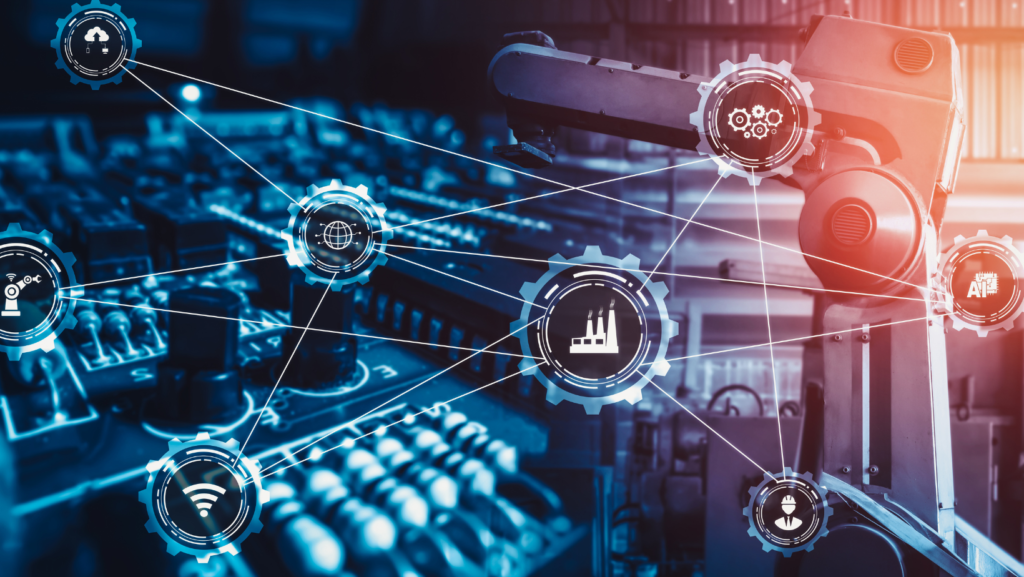Welcome to the second part of our Industry 4.0 series. As we delve deeper into the realm of Industry 4.0, we continue to uncover the transformative impact of advanced technologies on modern business practices. In this installment, we explore key considerations and emerging trends that are reshaping the industrial landscape, paving the way for a new era of manufacturing excellence.
Applications of Industry 4.0
The application of Industry 4.0 technologies is revolutionizing the way businesses operate in diverse ways. One such example is the use of collaborative robots, often referred to as cobots. These robots are designed to work alongside humans, taking over repetitive tasks and thereby freeing up employees to focus on more complex and cognitive tasks. This not only increases productivity but also enhances job satisfaction as employees are able to apply their skills to more fulfilling roles.
Another significant application is sensor integration. By adding sensors to machinery, businesses can gather real-time data on performance, temperature, and usage. This allows them to monitor equipment remotely through a dashboard, ensuring they are always aware of the state of their machinery. In case of any irregularities or potential issues, alarms can be sent to cell phones or other smart devices, enabling rapid response and minimizing downtime.
Moreover, software is being utilized to manage various aspects of operations. For instance, integrating inventory data with production schedules can help minimize excess stock and optimize the use of raw materials. Software can also be used to analyze customer order trends, helping businesses understand their market better and make more informed decisions. This ensures efficient and cost-effective transportation of goods, contributing to overall operational efficiency.
Cybersecurity Concerns
However, the transition to Industry 4.0 is not without challenges. The fusion and digitization of systems result in a considerable expansion of devices hooked up to the Internet of Things (IoT). As numerous machines and devices in a smart factory become interconnected within a single or multiple networks, any weaknesses in individual equipment could expose the entire system to potential threats. This scenario poses a significant cybersecurity dilemma, especially in relation to data protection and safeguarding intellectual property, underlining the need for deploying robust security protocols.
The effective execution of an AI algorithm demands data for its training and testing. This necessitates the sharing of data. However, there’s a prevailing reluctance among many companies to share their data with third-party solution providers. Moreover, the current data governance policies, meant for internal use within businesses, are insufficient in facilitating data sharing across different organizations.
We understand that embarking on the Industry 4.0 journey can feel overwhelming and filled with challenges. However, you don’t have to face this transition alone. MTEC is dedicated to providing guidance and support at every stage. Whether you need extra assistance or are considering applying for the NYS Industry 4.0 Advancing Manufacturing Initiative, don’t hesitate to contact MTEC. We are fully committed to assisting you in navigating this pivotal era in manufacturing.
To discuss Industry 4.0 further and explore how MTEC can support your business, please contact our Director of Operations, Phyllis Levine, at (845) 391-8214 Ext. 3001 or via email at phyllis.levine@hvtdc.org to arrange a complimentary visit
